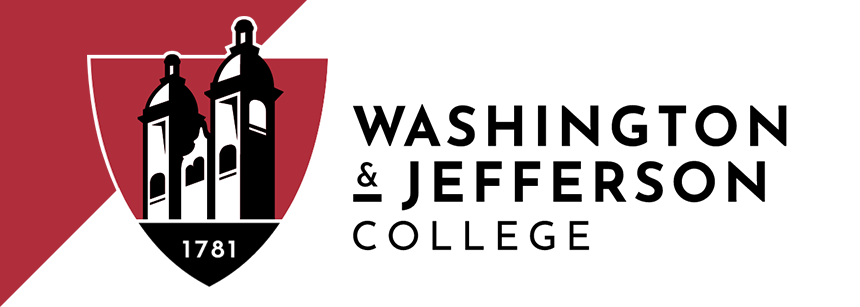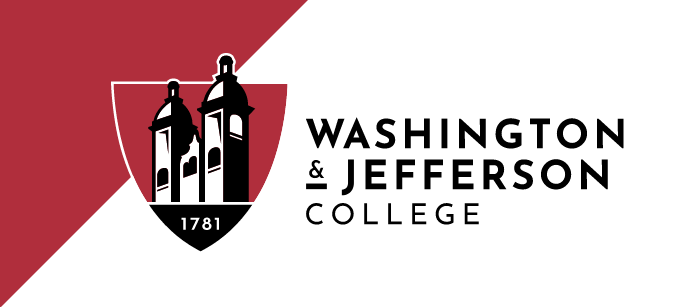Alcohol Policy
Washington & Jefferson College is subject to the laws of the Commonwealth of Pennsylvania. Consumption, purchase, possession, or transportation of any alcoholic beverages by people under the age of 21 is prohibited.
It is also unlawful for any person to knowingly provide alcoholic beverages to anyone under the legal drinking age of 21. Students are expected to obey the law and to take responsibility for their own conduct. In addition, the College maintains the following regulations regarding alcohol:
- The consumption of alcoholic beverages or the possession of open containers of alcohol are prohibited in public areas of the College, specifically including, common areas, porches, campus housing lounges, athletic facilities and outside grounds. Neither students nor the public may bring alcohol to any event that is open to the public.
- Providing alcohol to minors is a violation of state and local law as well as a violation of the student code of conduct. Any student or groups of students found to be providing alcohol to minors will be adjudicated through the student code of conduct.
- Alcoholic beverages may only be served at “closed” social functions in compliance with College policy and state law. “Closed” functions are by written invitation only.
- Students may not drink alcohol from a concealed container or any container larger then 12oz.
- Drinking games such as beer pong or any other game that requires an individual to drink alcohol are prohibited.
- Alcoholic beverages may not be included in organized membership recruitment activities.
- The advertising, promotion, and sale of alcohol are prohibited.
- Individual students and student organizations are responsible for their conduct, and the conduct of their guests and for promoting compliance with Pennsylvania laws and College policy.
- Violations of the alcohol policy may result in disciplinary actions through the Student Code of Conduct.
Regardless of any prior approval, the College may withdraw approval for any campus event or activity if the event or activity becomes unsafe, disruptive, or creates an environment conducive to violations of College policy or Pennsylvania law. It is recommended that any organization considering an event involving alcohol formulate and implement a program to increase alcohol awareness and prevent alcohol misuse for its members and guests.
Alcohol Emergency Amnesty Law
The state of Pennsylvania has an alcohol emergency amnesty law (“Good Samaritan” law). The alcohol amnesty law provides “immunity from prosecution for a person under the age of 21 for the possession or consumption of alcoholic beverages if law enforcement, including campus safety police, became aware of the possession or consumption solely because the individual was seeking medical assistance for someone else. The person seeking the assistance must reasonably believe he or she is the first to call for assistance, must use her/his own name with authorities, and must stay with the individual needing medical assistance until help arrives.”
Drug Policy
In accordance with state and federal laws, it is illegal for students to possess, use or sell illegal drugs, and to abuse or distribute prescription drugs. Included in these categories, but not limited to, are: opiates, barbiturates, amphetamines, marijuana, hallucinogens, illegal steroids, date-rape drugs, and other illegal or prescription drugs. Not only is it unlawful, but the presence, use and abuse of these drugs within the College are contrary to the intellectual and educational purposes for which the College exists. Indeed, possession of these substances may well be an indication that the student is not constructively engaged in academic endeavors. Individuals arrested for selling drugs or found to be in possession of significant quantities shall be subject to immediate suspension pending final disposition of the case in the College student conduct process. If the student is subsequently found guilty by the College, she or he may be expelled from Washington & Jefferson College. In some cases the College may seek to include or provide outside law enforcement agencies with information, evidence or resources to assist in drug investigations.
Use or abuse of illegal and controlled substances is a violation of College regulations. Students violating this policy should expect disciplinary action, which may include suspension from the College. Subsequent violations may result in suspension or expulsion.
The possession of paraphernalia, making no distinction between whether it has or has not been used for its intended purpose, is prohibited. Therefore, students are not permitted to possess hookahs, water pipes or bongs, and/or pipes designed to smoke tobacco alternatives.
Student Life staff members are available to provide counseling or referral services to students with concerns about drugs or alcohol use.
Psychoactive Drugs
Criminal Penalties for the use and possession of illicit drugs, along with illegal use of prescription drugs, vary greatly. Possession of a larger amount of a drug will typically result in criminal charges of distribution, leading to much stiffer penalties. Some examples of criminal penalties:
- A criminal record for drug possession automatically results in the loss of federal financial aid for one year.
- A criminal record for drug possession may prevent professional licensing and/or certification.
- Possession of up to 30 grams of marijuana-- up to 30 days in prison, $500 in fines.
- Possession of any controlled substance, such as heroin-- up to 1 year in prison, $5000 in fines.
- Possession of 5+ grams of cocaine-- 5-20 years in prison, $1000 in fines.
- Manufacture, distribution, importation of any designer drug, such as ecstasy - up to 20 year in prison and $250,000 in fines.
No Exception for Medical Marijuana
Marijuana is not permitted on campus, even with a prescription. Since W&J receives federal aid, and marijuana is still illegal according to federal law, it is W&J policy that medical marijuana is not permitted on campus in any form.

